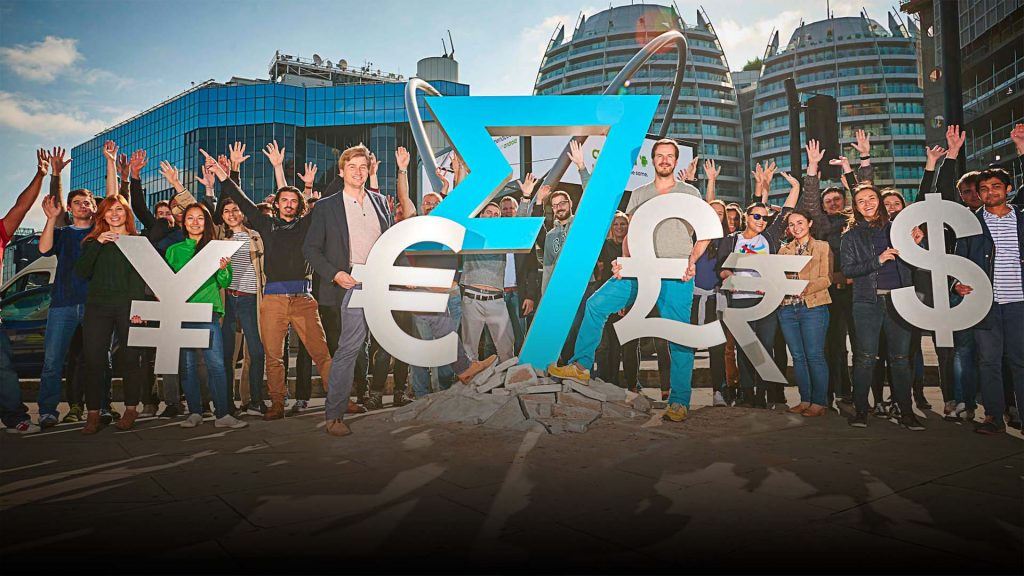Key Takeaway
In what many have called a “whopping” fundraising round, Transferwise announced their Series E this week, bringing in $280M to focus on expansion, particularly in APAC, as they continue to ride the waves of a profitable 2017. What does this mean for the cross-border payments industry, and what does it say about the global state of mind as 2017 draws to a close?
Global payments company and European unicorn TransferWise has particular appeal in its ability to reach a wide range of customer and payments needs, from freelancers performing international work, to simple peer to peer transactions, to large scale transfers for international businesses. The low fees, friendly experience and access to a variety of currencies seems unmatched in the industry, and with the addition of their new borderless account, all signs point to a bright future.
This recent fundraise, led by asset management firm Old Mutual Global Investors (OMGI) and Silicon Valley’s IVP, will be used “to develop new products and focus on expansion across Asia-Pacific…while also expanding its recently announcedborderless bank account that lets businesses store money in different currencies.”
The brand leaves no question about the market they’re aiming to disrupt, claiming they want to expand because so many people are “still being ripped off by banks and traditional currency brokers every day.” While these may be considered fighting words aimed one of the world’s largest industries, this commitment is exactly what has already enabled them to process over £1 billion per month, serving 2 million customers in 42 countries. Having Andreesen Horowitz and Richard Branson as backers doesn’t hurt either.
Those looking for insights in this data can begin to predict what this means for big incumbents like Lloyd’s Bank, RBS and Barclays who continue to face difficulties in customer retention and satisfaction.
Cryptocurrencies creeping in
The announcement comes at a time when all eyes remain on the Bitcoin charts, as value smashed through $7,000 for the first time on Wednesday, continuing to set record heights on a nearly daily basis. Did we see this coming? If you’re looking out, you most certainly did. On Tuesday, CME group (among others) announced they would be creating a futures contract for cryptocurrencies, as in their opinion, bitcoin has real-world applications beyond pure speculation. In response, prices soared above $6,500, and continue to climb.

Some of the initial arguments in favor of cryptocurrencies when Bitcoin broke onto the scene in 2009 focused on their decentralized, global nature – the ability to easily transfer payments across borders without the hassle of banks and middlemen, international transfer fees and traceable transaction records (though there remains evidence their digital nature isn’t always a good thing). These comments seem to echo in part the value proposition for brands like Transferwise.
It appears globalization is here to stay. In an increasingly interconnected world, the need to move funds between countries easily, and with the lowest possible fees, is reaching an all time high. Despite political events, which many attribute to fear of globalization and an indication that we’re moving back toward a nationalist mindset (ie. the Brexit vote and election of President Trump), investor confidence and consumer demand seems to argue otherwise.
"The world is becoming much more open, much more flat," Transferwise CEO Taavet Hinrikus stated in an interview with CNBC. "Regardless [of Trump], we're still open to a much more open, much more connected world with less borders."
Transferwise first appeared in the market in 2010 as a P2P service, where it was soon joined by competitors like Azimo and World Remit. Their models are similar: bypass the banks to allow for fast, low-fee transactions across borders. Individual banks have been late to the party, only recently introducing peer to peer money transfers and more user-friendly online banking.
The brand’s new borderless account offering poses an interesting proposition. For the well-traveled or dual citizens of the world, innovations like this finally offer light at the end of an often frustrating international banking tunnel. It also begs the question – will we ever see the introduction of a single global currency in the future, thus eliminating the need for “non-global” wallets altogether?
Bloomberg, and many others, toyed with the idea back in 2015 when uncertainty around the Euro was at an all time high amid the Greek crisis. Bloomberg concluded in favor of the idea: “most countries and companies would benefit if the world, not just Europe, used a single currency.” Of course, we can’t discount the fact that in order for this to happen, we might all just have to get along – something that’s already proven challenging, even when it comes to saving the planet.

What’s the Outside Insight?
If you’re working at all in the international finance or money transfer industries, in a company with global interests, or really, any growing business, this news offers several predictive indicators that should be noted:
- Globalization is still rising, particularly in the wake of Brexit and despite political moves that may suggest otherwise
- Just as Bitcoin value reached an all time high, Amazon quietly purchased 3 domain names related to blockchain and cryptocurrencies, sending a not-so-subtle message to investors about where they think this is going.
- Traditional banking and remittance institutions as we know them may be in trouble, as they’re outpaced by innovators like Transferwise in the developed world and Bitpesa and mobile money wallets in the developing world
- Cryptocurrencies are not just a fad, and this is being reinforced by the world’s largest derivatives marketplaces. Those who take steps now to incorporate cryptocurrencies into investment strategies and payment options might find themselves ahead of the curve
- Customer satisfaction for Transferwise remains incredibly high, as they continue to expand into new markets
- ICOs might be the IPOs of the future

